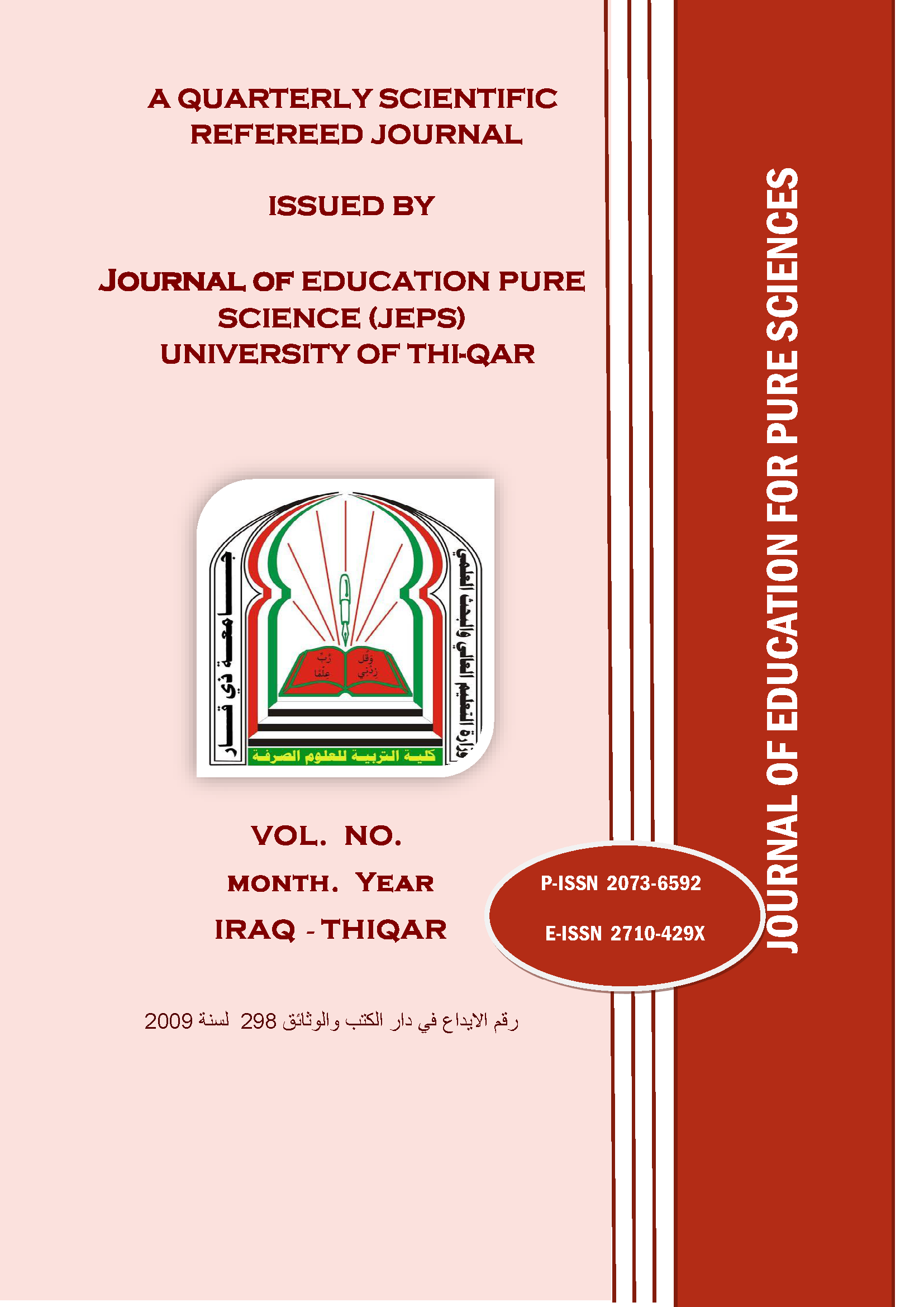Detection of PCOS Based on Genetic Algorithm Coupled with SVM
DOI:
https://doi.org/10.32792/jeps.v12i2.204Keywords:
support vector machine (SVM), Genetic Algorithm, PCOSAbstract
PCOS (polycystic ovary syndrome) is a hormonal illness that affects women's of life from a young age.
Human diagnosis of PCOS is a difficult undertaking for professionals; yet, rapid and accurate detection of
PCOS could save the lives of millions of women throughout the world. Current research employs highdimensional
features, resulting in low estimation accuracy and a long execution time. However, in this
research, we create a novel intelligence system based on a Genetic Algorithm linked with an SVM (AGSVM)
that uses fewer features to categorize PCOS. The dataset is preprocessed before a Genetic
Algorithm is used to select the most powerful features for PCOS classification. As a consequence, seven
features were selected from the feature set to represent PCOS data. The SVM is fed the selected
characteristics set in order to categorize them into healthy and non-healthy segments. Our results showed
that the suggested model (AG-SVM) achieved a 90% accuracy rate.
References
Krishnaveni, V., A Roadmap to a Clinical Prediction Model with Computational Intelligence for
PCOS. International Journal of Management, Technology and Engineering, 2019. 9(2): p. 177-
Inan, M.S.K., et al. Improved Sampling and Feature Selection to Support Extreme Gradient
Boosting For PCOS Diagnosis. in 2021 IEEE 11th Annual Computing and Communication
Workshop and Conference (CCWC). 2021. IEEE
Munjal, A., R. Khandia, and B. Gautam, A machine learning approach for selection of Polycystic
Ovarian Syndrome (PCOS) attributes and comparing different classifier performance with the
help of WEKA and PyCaret. Int. J. Sci. Res, 2020: p. 1-5.
Sumathi, M., et al. Study and detection of PCOS related diseases using CNN. in IOP Conference
Series: Materials Science and Engineering. 2021. IOP Publishing.
Soni, P. and S. Vashisht. Exploration on polycystic ovarian syndrome and data mining
techniques. in 2018 3rd International Conference on Communication and Electronics Systems
(ICCES). 2018. IEEE.
Zhang, X., et al., Raman spectroscopy of follicular fluid and plasma with machine-learning
algorithms for polycystic ovary syndrome screening. Molecular and Cellular Endocrinology,
523: p. 111139.
Tanwani, N., Detecting PCOS using Machine Learning. IJMTES | International Journal of
Modern Trends in Engineering and Science 2020. 07 (01 2020).
Satish, C.N., X. Chew, and K.W. Khaw, Polycystic Ovarian Syndrome (PCOS) classification and
feature selection by machine learning techniques. 2020.
Hassan, M.M. and T. Mirza, Comparative Analysis of Machine Learning Algorithms in Diagnosis
of Polycystic Ovarian Syndrome. International Journal of Computer Applications. 975: p. 8887.
Bharati, S., P. Podder, and M.R.H. Mondal. Diagnosis of polycystic ovary syndrome using
machine learning algorithms. in 2020 IEEE Region 10 Symposium (TENSYMP). 2020. IEEE.
Denny, A., et al. I-HOPE: detection and prediction system for polycystic ovary syndrome (PCOS)
using machine learning techniques. in TENCON 2019-2019 IEEE Region 10 Conference
(TENCON). 2019. IEEE.
Vaidehi Thakre1*, S.V., K.T. , and a.S. Sonawani4, PCOcare: PCOS Detection and Prediction
using Machine
Learning Algorithms. Biosc.Biotech.Res.Comm. Special, 2020. 13(14).
Mehrotra, P., et al. Automated screening of polycystic ovary syndrome using machine learning
techniques. in 2011 Annual IEEE India Conference. 2011. IEEE.
Thomas, N. and A. Kavitha, PREDICTION OF POLYCYSTIC OVARIAN SYNDROME WITH
CLINICAL DATASET USING A NOVEL HYBRID DATA MINING CLASSIFICATION
TECHNIQUE. Technology, 2020. 11(11): p. 1872-1881.
Cahyono, B., M. Mubarok, and U. Wisesty. An implementation of convolutional neural network
on PCO classification based on ultrasound image. in 2017 5th International Conference on
Information and Communication Technology (ICoIC7). 2017. IEEE.
https://www.kaggle.com/prasoonkottarathil/polycystic-ovary-syndrome-pcos/version/1. 2020.
C. Cortes and V. Vapnik, “Support-vector networks,” Mach. Learn., vol. 20, no. 3, pp. 273–297,
J. Han, M. Kamber, and J. Pei, “Introduction,” in Data Mining, 2012, pp. 1–38.19. Esen,
H., et al., Modelling of a new solar air heater through least-squares support vector machines.
Expert Systems with Applications, 2009. 36(7): p. 10673-10682.
De Jong, K. “Learning with Genetic Algorithms : An overview,” Machine Learning Vol. 3, Kluwer
Academic publishers, 1988.
Vafaie, H., and De Jong, K.A., “Improving the performance of a Rule Induction System Using
Genetic Algorithms,” Proceedings of the First International Workshop on MULTISTRATEGY
LEARNING, Harpers Ferry, W. Virginia, USA, 1991.
Downloads
Published
Issue
Section
License
The Authors understand that, the copyright of the articles shall be assigned to Journal of education for Pure Science (JEPS), University of Thi-Qar as publisher of the journal.
Copyright encompasses exclusive rights to reproduce and deliver the article in all form and media, including reprints, photographs, microfilms and any other similar reproductions, as well as translations. The reproduction of any part of this journal, its storage in databases and its transmission by any form or media, such as electronic, electrostatic and mechanical copies, photocopies, recordings, magnetic media, etc. , will be allowed only with a written permission from Journal of education for Pure Science (JEPS), University of Thi-Qar.
Journal of education for Pure Science (JEPS), University of Thi-Qar, the Editors and the Advisory International Editorial Board make every effort to ensure that no wrong or misleading data, opinions or statements be published in the journal. In any way, the contents of the articles and advertisements published in the Journal of education for Pure Science (JEPS), University of Thi-Qar are sole and exclusive responsibility of their respective authors and advertisers.




